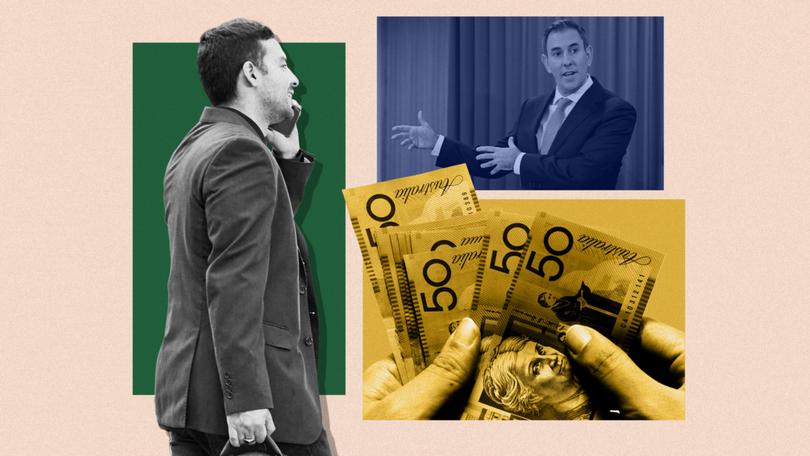NICK BRUINING: What the 2024 Federal Budget means for investors
NICK BRUINING: While the Treasurer is optimistically spruiking the minimal inflationary effects of his Budget, money markets will determine what we end up paying for our money in the form of interest rates.

While Treasurer Jim Chalmers is optimistically spruiking the minimal inflationary effects of his pre-election Budget, money markets both in Australia and overseas will ultimately determine what we end up paying for our money in the form of interest rates.
In any event, that uncertainty presents opportunities for investors.
Bank deposits
Sign up to The Nightly's newsletters.
Get the first look at the digital newspaper, curated daily stories and breaking headlines delivered to your inbox.
By continuing you agree to our Terms and Privacy Policy.For the uber-safety conscious, it means that depositors in boring old bank accounts can expect to see rates higher for longer.
In the past few weeks leading up to the Budget, we’ve seen those deposit rates holding their own. In other words, they’re not reflecting a fall in interest rates any time soon.
Deposit rates of up to 5.7 per cent per annum are currently available as an introductory rate, with the big four banks offering 12-month term deposits of 4 per cent or more.
Remember. Bank, building society, credit union and online bank deposits of up to $250,000 per account holder per institution, are protected by the Federal Government.
Property
On the downside, interest rates remaining higher for longer can also mean distress in the housing market.
Banks are already making provisions for an increase in loan defaults and just last week, the RBA noted that while supply constraints still exist, national housing growth is slowing.
That, combined with a slow-down in immigration could mean that when the supply side catches up with demand, the upward pressure on house prices and rents will really diminish.
It might not mean a fall, but a significant slowdown in growth could be just around the corner.
Shares
With looming tax cuts, the boost in infrastructure spending and the fact that everyone’s house has gone up in value since the pandemic, we shouldn’t underestimate the “wealth effect”.
Throw into the mix an excellent run on the share market since the start of the year, you’ll have superannuation account balances likely to be showing a double-digit return by June 30.
Economists argue that when everyone feels good about things, this wealth effect can boost consumption.
That can translate to a lift in share prices, particularly in those sectors that benefit from people with money to burn.
Retailers, travel and hospitality often do well, along with those sectors receiving direct support through government spending.

